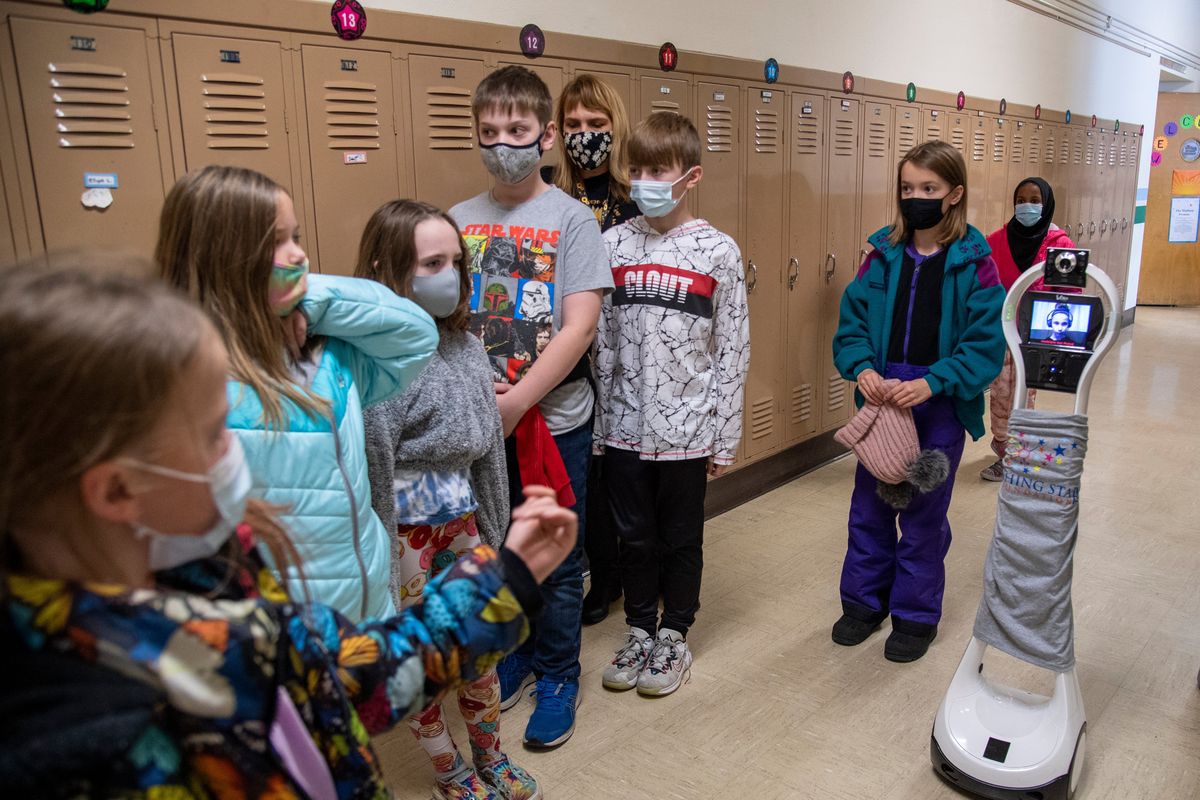‘Definitely a game changer’: Robot offers freedom for girl at Madison Elementary

As it rolls into a classroom at Madison Elementary School, the VGo robot is a sight for curious eyes.
Three feet tall and supported by a rubber wheel, it could pass for a miniature Segway. Fans of the “Big Bang Theory” TV show will instantly notice its resemblance to the robot that “carried” scientist Sheldon Cooper to his office.
According to its manufacturer, the VGo is a “combination of real-time audio/video communications and robotics that enables a person to replicate their presence in a distant location.”
But for Madelyn Shible, a fourth-grader with cerebral palsy, the VGo is her vehicle to a freedom that was taken away when her classmates returned to school after COVID-19 restrictions were eased last spring.
Too medically fragile to get back to the classroom, Madelyn had to stay with remote learning. Because teachers are prohibited from teaching in-person and remote learners at the same time, Madelyn was more isolated than ever.
More than that, she missed her classmates – friends, really, whom she’s known since kindergarten.
That’s how the year began. Meanwhile, five VGo machines were sitting at the Spokane home of Cindy Guthrie-Tripp, Director of Community Partnerships and Development for Spokane-based Wishing Star Foundation.
Madison teacher Joanna Constantine – now Madelyn’s homeroom teacher – connected the family with Wishing Star, which tries to make dreams a reality for children who are battling a terminal or life-threatening illness.
That was last summer.
However, the robots’ batteries were dead and needed replacing. Delayed by supply-chain issues, they only recently arrived. In the meantime, Madison Principal Heather Holter and her staff combed the 72-year-old school for cracks and other obstacles.
The big day came on Nov. 29. Operated by Madelyn on her keyboard, the VGo displays her face on a webcam screen not much larger than a cell phone.
More importantly, classmates and teachers can see her smiling face.
“That means a lot to the kids,” Holter said.
“We are excited to be able to offer our Wish Kids this unique opportunity to actually be in school, in real time and stay connected with their friends and teachers,” Guthrie-Tripp said. “It is definitely a game-changer.”
The only glitch came as the VGo moved through the hallways and suddenly stopped. The culprit was the concrete and other materials in the walls at the north Spokane school, which was built in 1949 that blocked its Wi-Fi signal.
The remedy also was old-school. When needed, Madelyn’s Bot Buddy carefully rolls the $5,000 robot onto a dolly and pushes her down the hall.
Inside Constantine’s class, the other students don’t show the slightest distraction as Madelyn’s image is displayed on the screen; everyone is learning.
The payoff can’t be measured by test scores.
“I just would like to express our appreciation and gratitude to Wishing Star for giving us this option,” said Madelyn’s mom, Jamilyn Shible.
Depending on their situation, other families also may have that option.
This VGo program is called the “Rolling Stars” program and also will be offered to Wish Kids in the Tri Cities, as well as North Idaho, on a needs basis.
